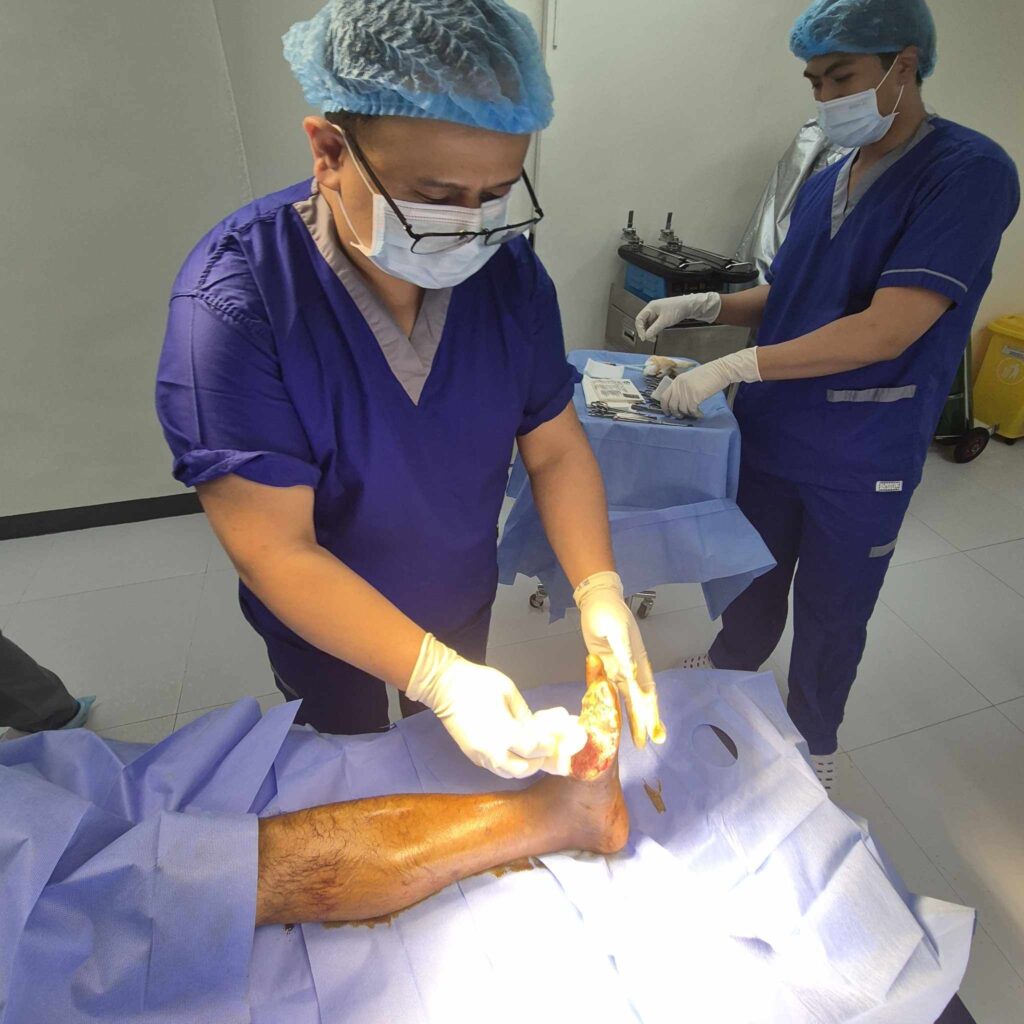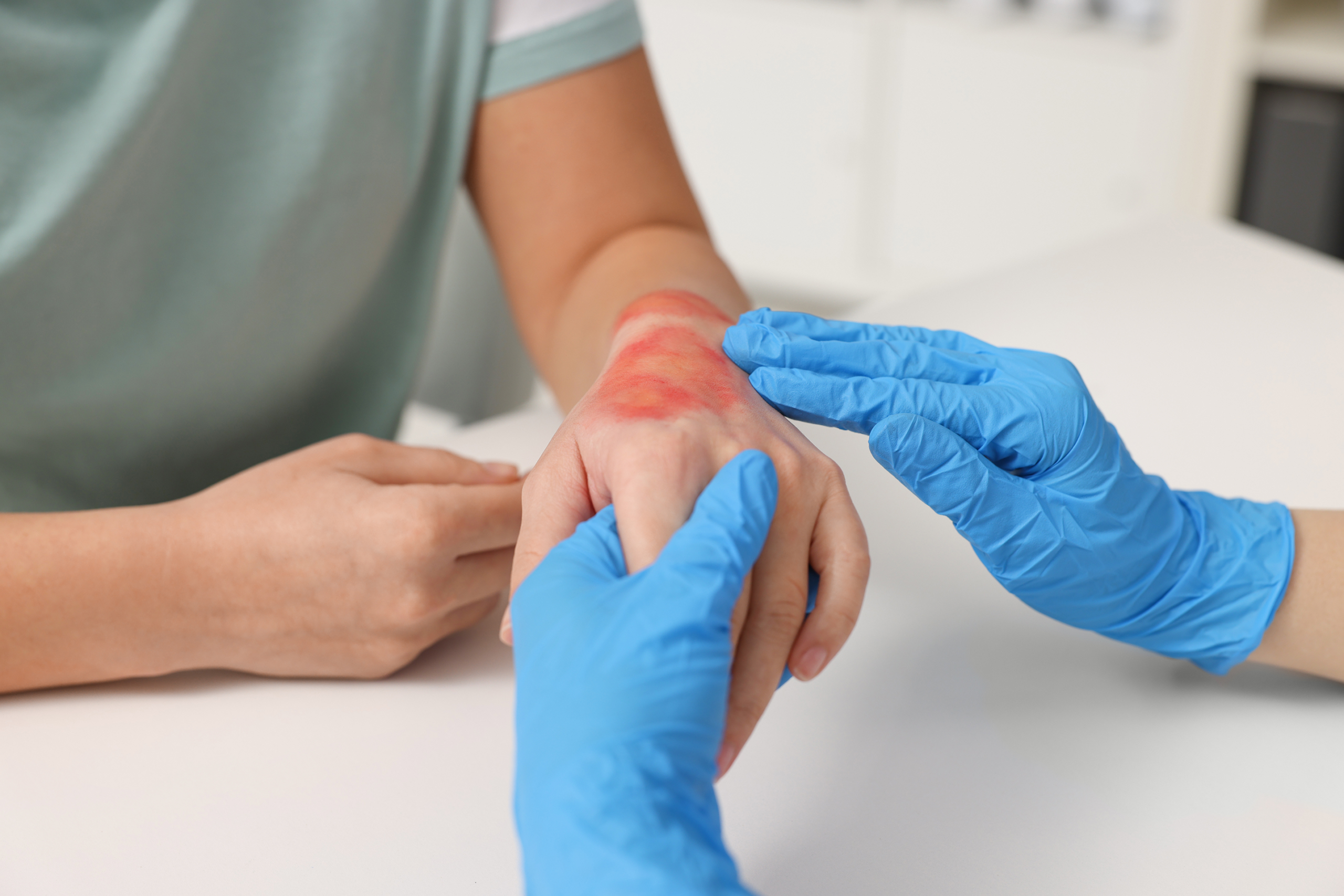A wound care doctor specializes in managing chronic, acute, and complex wounds that require advanced medical attention. These healthcare professionals play a crucial role in restoring health, preventing complications, and improving quality of life for patients with conditions like diabetic foot ulcers, pressure sores, venous ulcers, and post-surgical wounds. A wound care doctor combines clinical expertise with patient-centered care, addressing both the physical aspects of wound healing and the emotional well-being of the patient. Their interventions are essential for patients whose wounds are slow to heal or prone to infection, providing hope and tangible results where standard care may fall short.
Expert wound care doctors use evidence-based treatments to assess, treat, and manage wounds efficiently. By tailoring care to each patient’s specific needs, they maximize healing potential and reduce the risk of recurrence. The involvement of a wound care doctor ensures that patients receive not only medical treatment but also guidance on prevention and self-care, which is critical for long-term wellness.
Common Types of Wounds Treated by Wound Care Doctors
Wound care doctors address a wide range of wounds, each requiring a specialized approach. Chronic wounds, such as diabetic foot ulcers, venous insufficiency ulcers, and pressure sores, are common conditions that demand continuous monitoring and advanced treatment. Diabetic foot ulcers, in particular, can lead to severe complications if left untreated, including infection and amputation. A wound care doctor focuses on controlling infection, promoting healing, and educating patients about preventive measures to reduce the risk of recurrence.
Acute wounds, including post-surgical wounds, lacerations, and trauma-related injuries, also benefit from the expertise of a wound care doctor. Proper assessment and treatment prevent infections and encourage faster recovery. Additionally, infected wounds or wounds that fail to respond to conventional care require the intervention of a wound care doctor to manage complications safely and efficiently.
Venous ulcers, often caused by poor blood circulation in the lower extremities, present another challenge for patients and caregivers. Wound care doctors provide targeted treatments such as compression therapy and advanced dressings to improve circulation and promote healing. By addressing the underlying causes alongside the wound itself, these specialists ensure more effective and sustainable outcomes.
Advanced Treatments Offered by Wound Care Doctors
Wound care doctors use advanced therapies that go beyond standard wound management to accelerate healing. Negative Pressure Wound Therapy (NPWT), also known as vacuum-assisted closure, is a powerful tool for improving blood flow, removing excess fluid, and stimulating tissue regeneration. Patients with chronic or post-surgical wounds often experience faster recovery with NPWT under the supervision of a wound care doctor.
Debridement is another critical treatment. This process involves the removal of dead, damaged, or infected tissue to create an optimal environment for healing. Wound care doctors employ techniques such as ultrasonic debridement to ensure precision, minimize discomfort, and reduce the risk of infection.
Infection control is a central component of wound care. Wound care doctors carefully assess wounds for signs of infection and provide targeted treatments to halt the spread of bacteria, reduce inflammation, and prevent complications. Antibiotic therapy, specialized dressings, and regular monitoring are part of a comprehensive approach to infected wound management.
Venous insufficiency ulcer care requires attention to both the wound and circulation. Wound care doctors develop customized care plans, including compression therapy, dressings designed to improve healing, and ongoing monitoring. These interventions help patients regain mobility, reduce pain, and maintain long-term relief from chronic ulcers.
The Importance of Holistic and Patient-Centered Wound Care
Effective wound management extends beyond the wound itself. Wound care doctors provide holistic care by considering a patient’s overall health, lifestyle, and emotional well-being. Personalized treatment plans include not only advanced medical therapies but also education, counseling, and guidance on daily care routines.
Patient-centered care ensures that individuals understand their condition, actively participate in their healing process, and learn strategies to prevent future wounds. Wound care doctors educate patients about proper dressing changes, hygiene practices, nutrition, and lifestyle modifications. This combination of medical expertise and patient empowerment leads to more successful outcomes and improved quality of life.
Holistic care also addresses emotional and psychological aspects of chronic wounds. Patients often experience stress, anxiety, or frustration due to prolonged healing times or mobility limitations. A wound care doctor provides support, reassurance, and practical strategies to manage these challenges, helping patients maintain a positive outlook throughout recovery.
How to Choose the Right Wound Care Doctor
Selecting the right wound care doctor is crucial for effective treatment. Patients should consider factors such as expertise, experience, treatment options, accessibility, and affordability. Clinics offering advanced therapies, such as NPWT, ultrasonic debridement, and infection management, are ideal choices for individuals with complex wounds.
Accessibility is also important. Wound care doctors who provide easy appointment scheduling, follow-up support, and patient education ensure continuity of care. Affordability and insurance coverage are additional considerations, as long-term wound management can require multiple visits and ongoing treatments.
Choosing a wound care doctor who emphasizes a holistic and compassionate approach ensures that patients receive both advanced medical care and emotional support. This combination is vital for long-term healing and prevention of recurring wounds.
Preventive Education and Self-Care Tips
Preventing wounds from forming or worsening is as important as treating existing injuries. Wound care doctors educate patients on simple yet effective self-care strategies that promote healing and reduce the risk of future complications.
For diabetic patients, daily foot care is essential. Checking for cuts, sores, or signs of infection, wearing properly fitted shoes, and maintaining blood sugar control are key preventive measures. Immobile patients or those at risk of pressure ulcers benefit from regular repositioning, pressure relief techniques, and specialized cushions or mattresses.
Wound care doctors also advise on dressing maintenance, hygiene, and monitoring for early warning signs of infection. Proper nutrition, hydration, and lifestyle adjustments further support the body’s natural healing process. By empowering patients with knowledge, wound care doctors help individuals take an active role in managing their health and well-being.
Case Examples of Wound Care Doctor Success
Patients with chronic wounds often experience remarkable improvements under the care of a wound care doctor. For instance, a patient with a diabetic foot ulcer may see accelerated healing with NPWT combined with targeted infection management. Pressure ulcer patients frequently regain mobility and comfort through personalized care plans and advanced dressing techniques.
These case examples highlight the value of expert intervention, consistent monitoring, and patient education. Wound care doctors not only treat the wound but also help patients regain confidence, independence, and a sense of control over their health.
Booking a Consultation with a Wound Care Doctor
Scheduling a consultation with a wound care doctor is the first step toward effective treatment. During the initial visit, the doctor conducts a thorough assessment, evaluates the patient’s medical history, and creates a customized care plan. Patients receive guidance on treatment options, expected outcomes, and self-care strategies to support healing.
Many clinics offer free or low-cost consultations to ensure accessibility for all patients. Choosing a wound care doctor who combines advanced medical knowledge with compassion and patient-centered care ensures a smoother healing journey and better overall outcomes.
Takeaway
A wound care doctor offers specialized, compassionate care for patients with complex, chronic, or acute wounds. Advanced treatments, personalized care plans, and preventive education empower patients to heal faster, reduce complications, and maintain long-term wellness. Access to an expert wound care doctor ensures that every wound is treated effectively while supporting overall health and quality of life.
FAQ Section
What is a wound care doctor?
A wound care doctor is a medical specialist who diagnoses, treats, and manages chronic, acute, and complex wounds. They use advanced therapies, patient education, and personalized care plans to promote healing and prevent complications.
How quickly can wounds heal with a wound care doctor?
Healing times vary depending on the type and severity of the wound. Chronic wounds may take weeks to months to heal, while acute wounds often respond more quickly. Regular monitoring and advanced treatment accelerate recovery.
Are advanced wound treatments painful?
Wound care doctors use techniques designed to minimize discomfort. Procedures such as NPWT or ultrasonic debridement are typically well-tolerated, and pain management strategies are provided as needed.
How can I prevent chronic wounds from recurring?
Preventive measures include proper hygiene, daily self-inspections, pressure relief, nutrition, blood sugar control for diabetics, and regular follow-ups with a wound care doctor. Education and lifestyle modifications play a key role in long-term prevention.
When should I see a wound care doctor?
Seek a wound care doctor if a wound is slow to heal, shows signs of infection, or results from a chronic condition like diabetes or poor circulation. Early intervention improves outcomes and reduces the risk of complications.
Can a wound care doctor treat pressure sores at home?
Wound care doctors provide guidance for home care, including dressing changes, hygiene, and pressure relief techniques. Severe cases may require in-clinic treatments and advanced therapies for optimal results.










